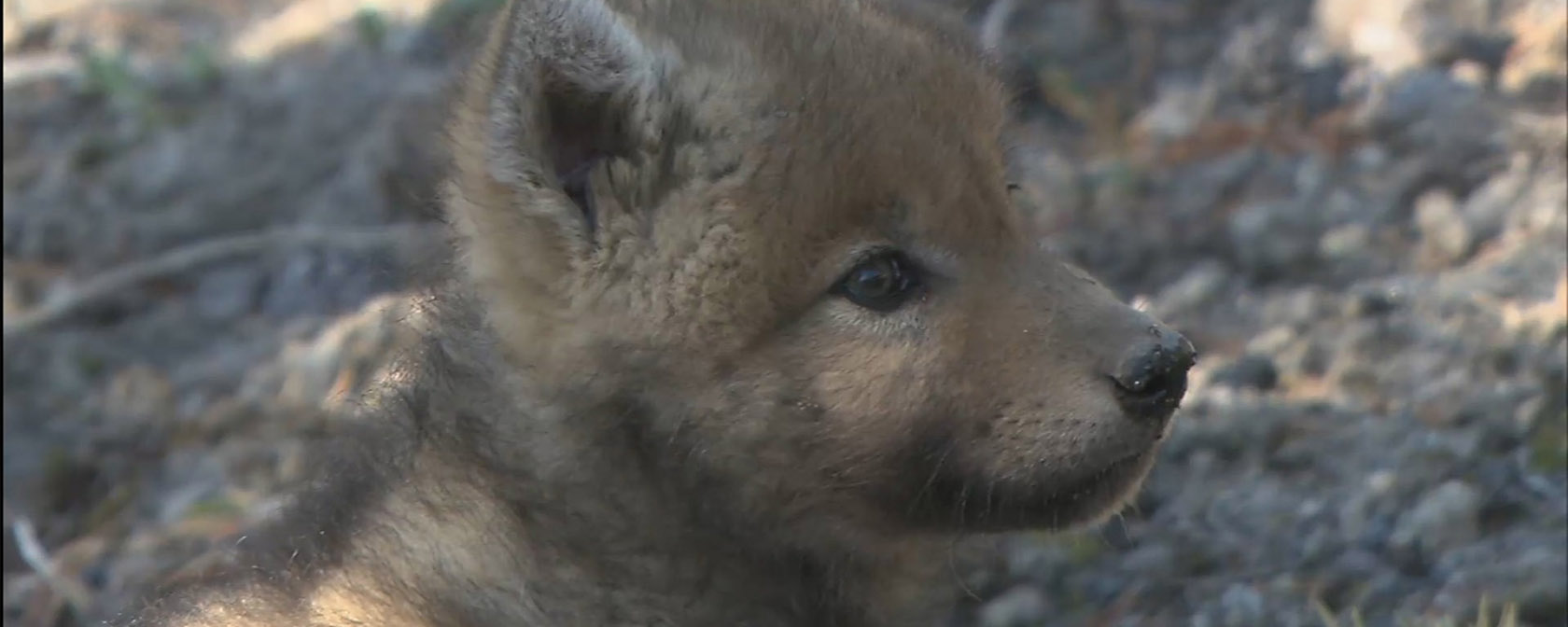By Sara Amundson and Kitty Block
Every year, people flock to places like Yellowstone National Park just to try to catch a glimpse of wolves in the wild. Wolves have long symbolized the powerful allure of our wild spaces—but more than that: As a keystone species, wolves are drivers of balanced ecosystems and a powerful reminder that wild animals are part of complex social structures and have deep bonds with their families—just as we do.
And yet, wolves still have not yet recovered from the intense persecution that nearly caused their extinction in the Lower 48 U.S. states during the 19th and 20th centuries. Today, they inhabit just 15% of their historic range there.
That is why ensuring wolves are protected under the Endangered Species Act is vital, especially in light of renewed threats to their populations.
New survey results confirm just how deeply Americans care about wolves: 78% of those surveyed support continuing federal Endangered Species Act protections for wolves. Moreover, those in strong support of continued protection outnumber those who strongly oppose it by nine to one. This suggests that a better future for wolves is within our reach once we can set aside the political motivations of some of those determined to hunt and trap them—recklessly, dangerously and without regard for their significant status and role in healthy ecosystems.
Importantly, the researchers oversampled rural residents of states with gray wolf populations to provide more precise estimates of attitudes toward wolf protection in areas where wolves and humans share space. Yet, even among those socio-demographic groups one might expect to have more negative feelings toward wolves, the authors found strong support for continued Endangered Species Act protections.
For example, 75% of rural residents in states with gray wolf populations support continuing federal protection, and 79% of people who strongly or very strongly identify as a farmer or rancher support doing so as well. Additionally, three out of every four respondents who identified as politically conservative support continuing protection.
Still, some decision-makers routinely call for delisting in response to pressure from trophy hunting, recreational trapping and agricultural interests. The misleadingly named Pet and Livestock Protection Act (H.R. 845/ S.1306), a dangerous and overreaching federal bill to delist gray wolves and prohibit courts from reviewing that decision passed out of the U.S. House of Representatives Natural Resources Committee in April, and it could come to the House floor soon. There is also a policy provision to delist wolves from endangered species protections included in the House’s version of the FY 2026 Interior Appropriations bill, H.R. 4754.
Stand up for wolves >>
We are grateful to Dr. John Vucetich, distinguished professor at Michigan Technological University, and Dr. Jeremy Bruskotter, professor at The Ohio State University, who designed and analyzed the results of the nationwide survey, which Humane World for Animals helped to fund.
And we are determined to keep fighting for the protection of wolves, wherever they face threats. In the Northern Rocky Mountain states of Idaho, Montana and Wyoming, wolves are relentlessly persecuted because they lack federal protections. However, we recently won a lawsuit in federal district court that could force the federal government to reassess whether to protect these wolves. Action for wolves in this region is urgent because of the cruelties wolves are facing:
- In Idaho, entire wolf families are being killed in their dens.
- Montana, which already allows outrageous killing methods and bounties on wolves, just increased the number of wolves that can be killed this season to more than 550 and increased the number of wolves a single person can kill to 30.
- Wyoming maintains what it calls a “predator zone” in 85% of this massive state, where it allows unlimited wolf killing with draconian methods, including purposefully running them over with snowmobiles and other vehicles. (Relatedly, the man who in 2024 ran over a wolf with a snowmobile and then kept her captive and tormented her in a barroom will face arraignment Nov. 10 in Sublette County, Wyoming.)
This is what can happen when U.S. states manage wolves—the risk is that the few who want to see wolves antagonized and killed guide decisions rather than the many who favor conservation and stewardship in guiding decisions about wolf populations. Ethics—even humanity—can fly out the door.
For these reasons, we must ensure wolves are protected by the Endangered Species Act, including in the Northern Rocky Mountains. Removing protections for wolves and paving the way for trophy hunting and recreational trapping is not supported by science. Contrary to their big bad wolf reputation, the reality is that wolves are extremely shy and avoid us as much as possible. In fact, a new study shows they are more likely to flee from the sound of human voices than other noises. The new survey offers yet more evidence that delisting is not supported by the vast majority of people, either.
The war on wolves extends across the globe as well. Earlier this year, the European Parliament voted to support the European Commission’s proposal to weaken the protection of wolves, opening the door for wolf trophy hunting. While EU member states can still choose to keep protections in place, this development is deeply concerning and could be significantly detrimental to the well-being of wolves.
Decision-makers must stop pushing these reckless policies at the behest of a vocal minority that is hostile to wolves and start listening to science and the will of the people. Last month, 77 scientists and scholars sent an open letter to members of Congress urging continued protections for wolves. You too can help wolves in the U.S. by taking action against H.R. 845/S. 1306 and the dangerous delisting proposals in the FY 2026 Interior Appropriations bill.
Kitty Block is CEO and president of Humane World for Animals.




